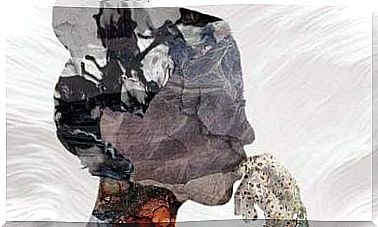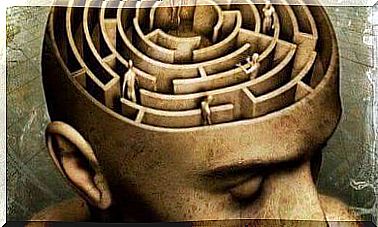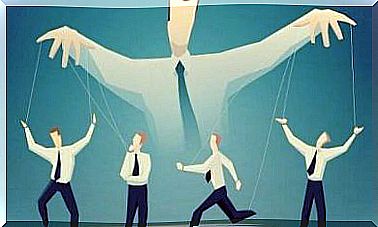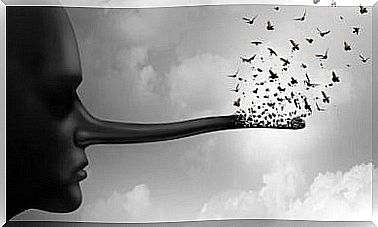Phobia For Committing Impulsive Actions: What Is It And How To Treat It?

Phobia of committing impulsive actions is the extreme fear of following an impulse, losing control and harming yourself or others. Some diagnostic classifications even see the phobia of committing impulsive acts as a form of obsessive-compulsive disorder (OCD), because it is a kind of invasive thought that hijacks your mind.
Finally, it causes you to perform some form of action or thought (compulsion) to reduce the anxiety that the invasive thought makes you feel. Now we’ll tell you how to identify it and how to treat it.
How do you identify a phobia of committing impulsive acts?
From a professional point of view, phobia of committing impulsive actions is a form of OCD. And whether we look at it as a kind of OCD or as its own phobia, it is a condition that involves an intense fear of your own impulses.
The main clinical features of this disorder are:
- To be invaded by thoughts about following an impulse and losing control.
- That the content of these thoughts all has something to do with predicting an “aggression”. It can be against yourself or against other people.
- Feeling of intense fear just from the fact that you have such thoughts.
- Act in a way that you think will prevent such thoughts from becoming a reality.

What are the most common impulses?
People who go to a professional and are diagnosed with a phobia of committing impulsive actions can usually identify the thoughts that frighten them most: hurt their loved ones, jump from a balcony, swing on the highway, or jump in front of a train. In all these cases, the patient has a kind of thought-action fusion.
The way that phobia to commit impulsive actions develops is:
- First you have a thought or a mental image where you “see” yourself following an impulse and losing control. They see that image or thought as catastrophic.
- Then they use all the mental resources they have to “delete” those images or thoughts. But since focusing on their thoughts is the wrong strategy, the anxiety gets even worse and their expectations become even stronger.
- Since they can not control what they think (no one can), they reinforce the power of the idea that they will lose control. And it will make their sense of fear even stronger.
The most common consequences of phobia for committing impulsive actions
Any form of OCD or phobia (if what they are afraid of is present every day) will lead to a huge reduction in a person’s quality of life. This is because they work hard to control their fears and avoid situations that make them anxious. So little by little, without realizing it, they end up losing parts of their personal lives and throwing away a lot of energy to control their fears.
Another thing that happens is that you make yourself the enemy. Since it is an ego-dystonic disorder, your demand on yourself to control these thoughts is extremely high. (Ego-dystonic is when there is a lack of connection between what you think and what you want.) At the same time, you also feel that you are fighting against yourself.
That is, obsession and fear will take over the person’s attention. But they think that since it is external, they can control it. When they can not, they feel that they are the ones causing the obsession. Therefore, they feel that they are fighting against what their thoughts tell them. If it persists, this inner struggle will lead them to anxiety and depression, which may also need therapy.

What is the treatment for phobia to commit impulsive actions?
Treating a phobia to commit impulsive acts, no matter what your obsession is – whether it’s hurting yourself or others – will always be psychological. However, if a patient has extreme anxiety, therapy and prescription medications are often appropriate. In general, therapy is treated with similar treatment for people with OCD.
There must always be a psychological treatment because psychologists are the only ones who have the training and experience needed. The treatment includes to:
- Understand how they got this problem and how it affects them now.
- Evaluate and identify the different ways they have tried and failed to deal with their disorder.
- Develop the things they tried that worked.
- Understand how their minds and suffering work. That way, they can take control of what happens to them.
- Get away from their thoughts. This means that thinking of something does not mean doing it or being able to do it. Nor does it make it more likely.
- Get back to valuable parts of life that they have neglected.
- Prevent relapse and strengthen the psychological tools they have learned.
Psychological treatment
Finally, we would like to mention that although there are different psychological approaches to treating phobia to commit impulsive actions, they are the only ones with research behind cognitive behavioral strategies.
This does not mean that other approaches are not valid. It just means that they still have not scientifically proven whether they work or not. This is probably because they do not do many studies on other therapeutic models that are more difficult to standardize. Short strategic therapy is an example.
If you identify yourself as a person with a phobia of committing impulsive acts, remember that it is a mental problem. The sooner you confront it, the faster you will find relief. Psychologists are your biggest allies! So stop procrastinating, and if you need to, take that step: ask for help.









